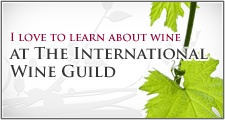We have all heard that red wine is good for our hearts, white wine is good for our lungs, and - of course - all wine is good for our taste buds. But, recent findings have revealed Champagne may also be good for our minds. Move over Merlots and Rieslings, scientists now have Champagne on their brains.
An April 2007 article published in the Journal of Agricultural and Food Chemistry revealed findings indicating Champagne as a source behind brain protection. This sparkling wine, according to the study, may help protect the brain from the injuries common with Parkinson’s disease, Alzheimer’s, and stroke.
The reason for Champagne’s ability, according to the researchers at Italy’s Universita degli studi di Cagliari and England’s University of Reading, lies in the high presence of polyphenols packed within every bottle.
Polyphenols, chemical substances derived from plants, are antioxidants, which help cells avoid death, destruction, and things like cancer. Red wine, once again grabbing the spotlight, is generally thought of as containing the highest concentration of polyphenols - making it one of the healthiest types of wines to drink - but previous research indicates that Champagne contains a high amount of another type of polyphenols, one that has the brain in mind.
To prove their hypothesis, researchers introduced Champagne to the neuron cells of rodents. In other words, they took the mice out drinking. After separating mice cells into two groups - one that would be let alone and one that would be penetrated with Champagne extracts - the scientists triggered a stroke.
Their discovery was that the group of neuron cells penetrated with Champagne extracts demonstrated a significant amount of protection against damage, while the group of neuron cells left alone was not able to fight off destruction.
The reason for this, they concluded, was that caffeic acid and tyrosol, antioxidants found in polyphenols, contain anti-inflammatory characteristics. This keeps them from responding to injury and damage. Caffeic acid and tyrosol also possess the ability to remove toxic chemicals, expunging them from a person’s (or a mouse’s) body. Both of these factors work together to help Champagne “top off” our well being.
These findings have now led to further investigation of Champagne’s influence on health and human lifespan, with a specific interest on its influence over aging. In the past, “the bubbly” has always been thought of a drink you want in hand during times of glee. A spirit with a sparkling personality, Champagne seemed to find itself permanently fermented in a celebratory role.
But, as more and more research is performed, Champagne has a chance to turn over a new leaf in medical science.
This life preserving task may be one Champagne takes on anew, but it’s one we hope goes to its - and our - heads.
With members of the health community raising its rank, Champagne is our new champion. So, as it puts a cork in brain injury, we propose a toast to the Dom Perignons, the Veuve Clicquots, and the Louis Roederers of the world. Fill your glass and ease your mind.








